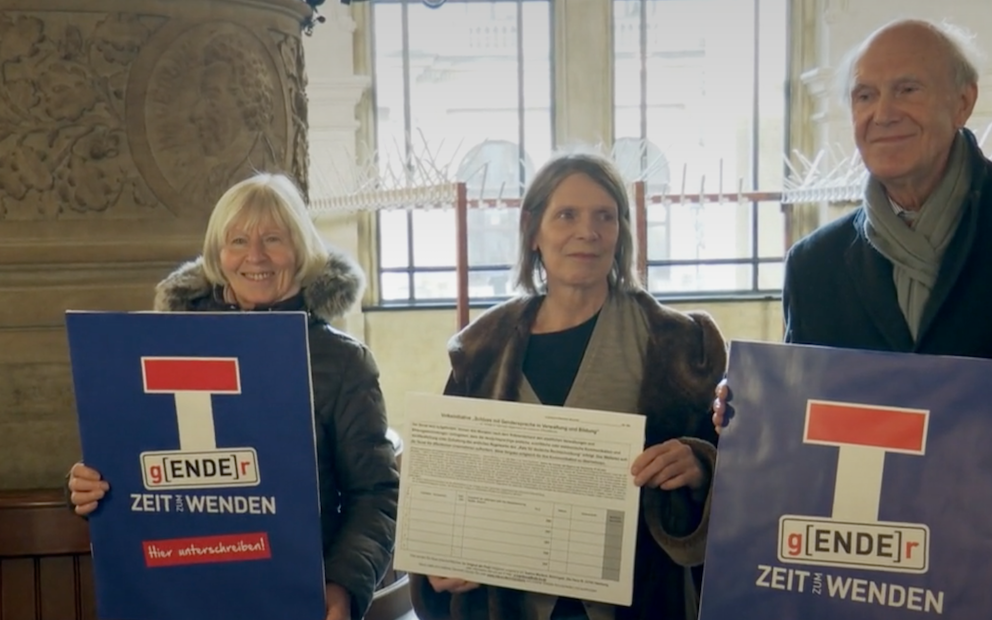Germans in Hamburg fight against gender language

Photo Screenshot NDR Hamburg
Central Europe
Citizens in Hamburg use a referendum to fight against the introduction of gendered language. They are supported by the local CDU party.
Christoph Ploss, CDU chairman and part of the initiative “Stop gender language in administration and education”, gathers signatures in a shopping centre of Hamburg, NZZ reports. Ploss points out that many inhabitants of the city have no idea what gender language (Gendersprache in German) is about. “Every second person here does not speak German”, he says.
Ploss notices that many people have not even asked themselves the question whether they prefer "Studenten" (male students), Studentinnen" (female students) or "Studentx", or “Student*innen”, the latter two being the gender-neutral form of the word "students". The CDU chairman often has to explain why he is there to gather signatures. On his table are pens, candy with the party logo and a clipboard where people can write down their signatures.
Gender sensitive
According to NZZ, the initiative has been up and running since the beginning of last month. It was started by art therapist Sabine Mertens from the German Language Association and the More Democracy Association. She discovered that most Germans do not want to change their language to be more inclusive. German citizens find it okay to use existing gender-neutral words. Still, they do not like the addition of asterixis, colons and x's to words. In 2022, a survey showed that most citizens oppose these changes.
Yet, German politicians seem to be determined to introduce these new gender-neutral forms more and more into the language. At universities, companies and political bodies, people are expected to use new forms of address that are gender sensitive. Some universities even deduct exam points if students do not conform to the new language guidelines.
Referendum
It is not hard to get enough signatures to get the initiative into Parliament, says Ploss. In total, they need 10,000 signatures for that. At the beginning of March, only a few more were needed, NZZ writes. The deadline for the petition is not until June.

An initiative with at least 10,000 signatures can potentially become law, NDR writes. In that case, the local authorities must consider it. If they approve the petition, schools, administrations and municipalities can no longer require students or employees to use gendered language. However, the red-green coalition will likely refuse the petition as it is not necessary to listen to it.
In that case, a referendum can be requested. In that case, all eligible voters may speak out on the issue within 21 days. If that still does not convince the state senate, another referendum can follow. Citizens must then vote yes or no, and the state parliament can submit its own draft for a vote. If at least 20 per cent of the voters show up for the ballots, the bill that receives the most votes will be passed. At the same time, NZZ notes that citizen initiatives are not very common to survive till the end.
Related Articles







